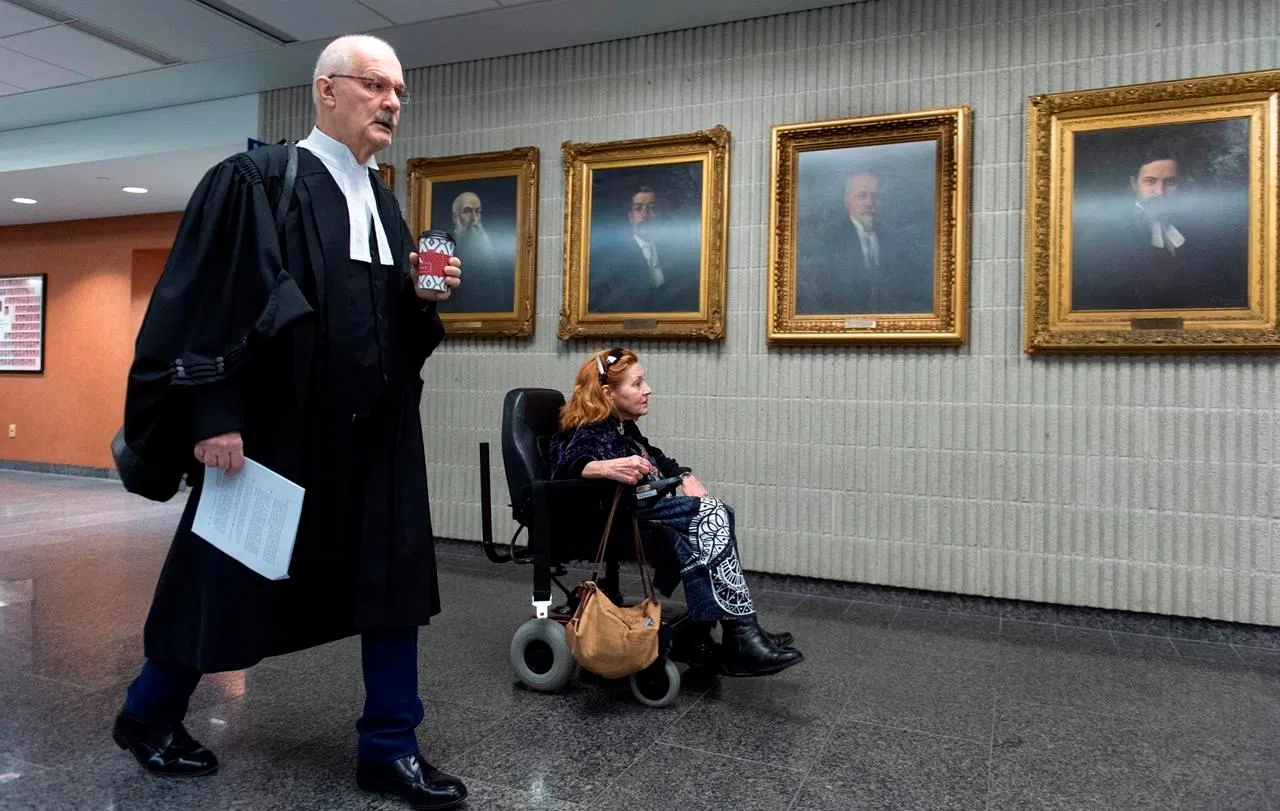
Plaintiff in assisted-death case says he wants an end to suffering
MONTREAL — Afflicted with an incurable degenerative condition, Jean Truchon says he considered all possibilities to end his life, including starvation, drowning and a lethal overdose. He ruled them out and is instead in court challenging provincial and federal laws that have left him ineligible for a medically assisted death.
In testimony before Quebec Superior Court Tuesday, Truchon, who was born with cerebral palsy, said he has full mental capacity and people who care for him. Despite being born without the use of both legs and one arm, he had become accustomed to getting around in a wheelchair.
But since losing the use of his only functioning limb in 2012, he feels his life is over. He had to move out of his apartment into a long-term care facility. Testifying with the help of a friend because of a dysphasia that makes it difficult for him to be understood, Truchon, 51, said he is in constant pain.
“For me, I died in 2012,” he told Justice Christine Baudouin. He cried as he described his life in the care facility and the loss of dignity he feels.


